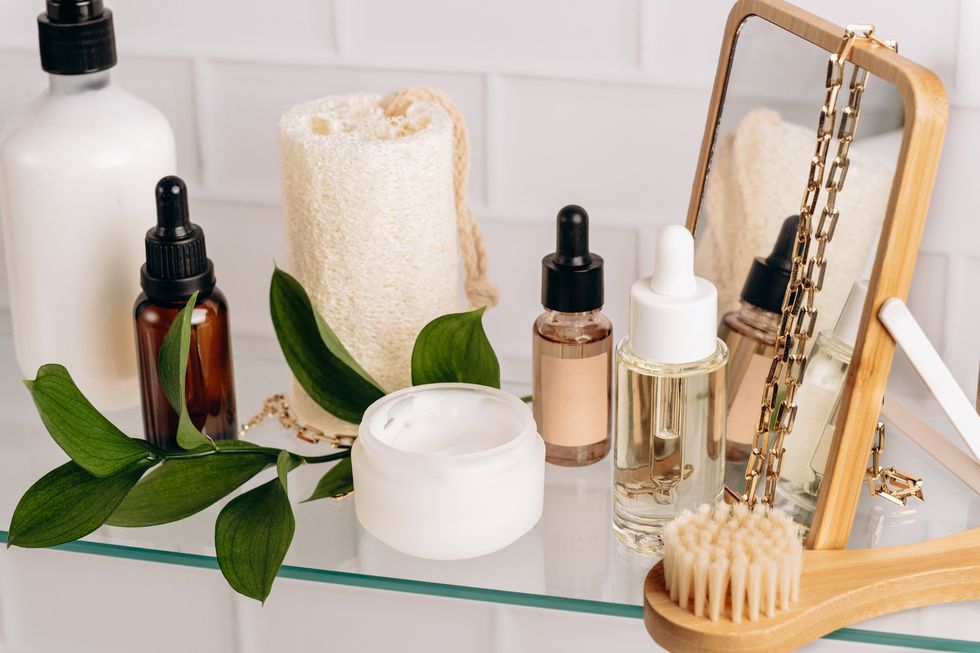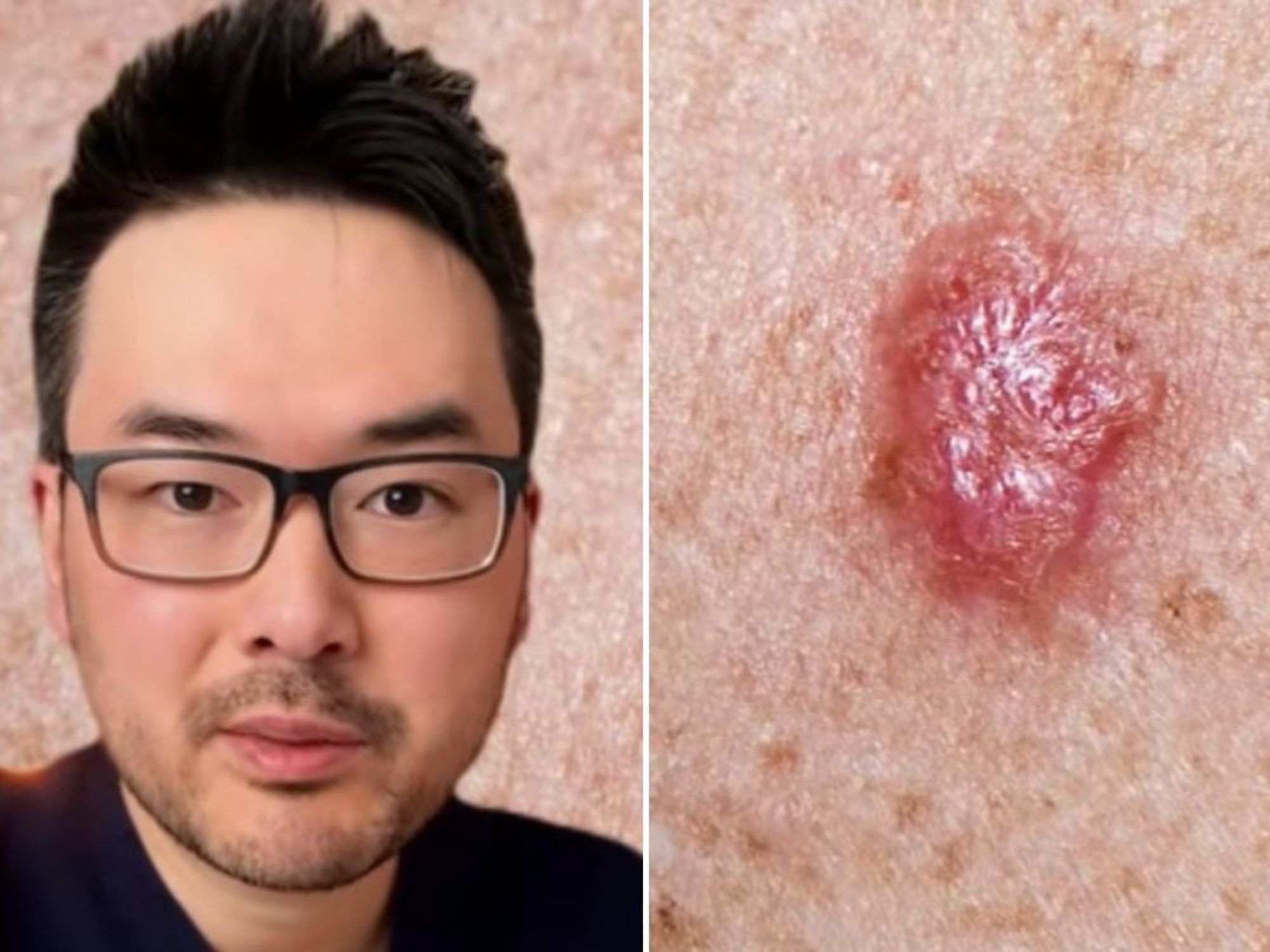The use of benzene in cosmetics is no longer permitted in the UK
Don't Miss
Most Read
Trending on GB News
A dermatologist has warned that using expired beauty products poses health risks.
This comes as new research revealed 12 per cent of Britons need to declutter their cosmetics and toiletries.
A survey by Roseland Furniture - which polled 1,003 UK respondents - identified these products as a significant category of items people are storing unnecessarily. Indeed, 12 per cent of participants admitted they needed to get rid of such items at home.
The accumulation of old cosmetics raises serious health concerns, according to skin experts. Cosmetics, as defined by Cancer Research, includes makeup, skin care, hair care, toiletries and perfume.

Using expired beauty products poses worrying health risks
GETTY IMAGESDermatologist Dr Sweta Rai warned that using expired toiletries and beauty products poses health risks.
Noting that these products may be "less efficacious" as they age, their active ingredients can break down and interact with other actives.
This degradation can produce an "irritant effect on the skin" and alter the product's colour, consistency and smell.
Dr Rai identified several concerning ingredients in expired cosmetics, including benzene. She said: "Benzene is a known carcinogen and ethanol amine when broken down can produce nitrosamines which may be carcinogenic [having the potential to cause cancer]."
The UK Health and Security Agency's most recent guidance on benzene explained that its use in consumer products is no longer allowed.
Britons were told: "Benzene is known to cause acute myeloid leukaemia/acute non-lymphocytic leukaemia and potentially other cancers in humans. The International Agency for Research on Cancer (IARC) has classified benzene as carcinogenic to humans.
"Benzene is an important chemical; it is used as a starting material for a wide range of chemicals which feed into major industrial manufacturing processes. End products from processes requiring benzene include plastics, foams, dyes, detergents, solvents and insecticides.
"Before its toxic nature was realised, benzene was previously used in cosmetics (for example, aftershave), domestic (cleaning) solvents and in the process of decaffeinating coffee. Its use in such consumer products or processes is no longer permitted."
However, some Britons may still have such products at home from before the ban.
Cancer Research UK provided some reassurance for Britons, though. Experts stated: "In 2022, there were concerns about the safety of specific dry shampoo products in the US. Some were shown to contain benzene, a chemical known to cause cancer.
"Benzene can increase the risk of cancer if people are exposed to high levels over long periods. For example, through smoking cigarettes or working with benzene. It's very unlikely that the amount of benzene in these dry shampoos could cause cancer.
"There is no research showing a link between using dry shampoos and increased cancer risk."
Dermatologist Dr Rai continued: "Benzene, Benzophenones, acrylates, formaldehyde, carbon black, hydroquinone and many other chemicals in creams and cosmetics can be harmful to the skin.
"Most chemical compounds lose their strength/bioavailability if they are past their best before date, and they are not 'dangerous' per se.
"However, some chemicals are degradation products of the active agent, and these can be harmful."
LATEST DEVELOPMENTS

Cosmetics users should be very careful about how they store their products
GETTY IMGAES
Products left open or exposed to moisture or heat present particular dangers, posing a "bacterial/infection risk".
Vitamin C products are especially vulnerable to deactivation in direct sunlight, the expert warned.
Other active ingredients, such as hydroquinone and niacinamide, may also be affected by heat and light exposure.
To prevent health concerns, Dr Rai recommended storing beauty products "in a cool, dry area" to prevent bacterial growth and chemical degradation.
She explained that cosmetics - including sunscreens - are formulated to remain stable for a specific "shelf life".
"When the shelf life is exceeded, the chemicals in the products may behave in an undesired manner," the expert stated.
Using products within their valid shelf life is essential to avoid potentially harmful chemical reactions. However, it is worth noting health risks will only appear in extreme circumstances.









